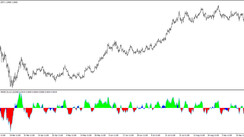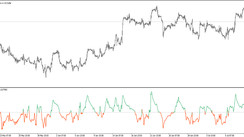Introduction to Short-term Trading
Characterized by the rapid buying and selling of financial instruments, short-term trading is an approach where transactions occur within days or weeks, distinguishing it from long-term trading that spans months or years. Assets excellent for short-term trading are typically more volatile, their values fluctuating greatly - an attribute that allows short-term traders to potentially pocket decent profits through low-buy, high-sell transactions.
Prime Assets for Short-Term Trading
Among the best assets for short-term trading, you'll find:
Forex: The foreign exchange (Forex) market, the world's largest and most liquid, furnishes a perfect space for short-term trading with its robust pool of buyers and sellers and notably volatile currencies.
Stocks: Stocks, tying you to part ownership in a company, can be bought and sold on stock exchanges. They're generally more volatile than assets such as bonds, making them apt for short-term investing.
Indices: Indices, essentially collections of stocks representing specific markets or sectors—think S&P 500—can offer short-term traders broad exposure via just one transaction.
Commodities: Commodities like oil, gold, and wheat, traded on commodity exchanges, are also volatile and can spell profit for the discerning short-term trader.
Even though these assets can likewise turn a profit for long-term traders, bear in mind that short-term trading is inherently more risky, potentially leading to losses should the market pivot unexpectedly.
Effective Strategies and Tips for Short-Term Trading
Various strategies exist for profitable short-term trading:
Day trading: Aimed at same-day buy-sell transactions, day trading is for those who feel they can forecast quick price changes.
Swing trading: This lets you hang onto assets for a few days or weeks, catering to those with a knack for detecting market trends.
Position trading: This entails holding onto assets for longer periods, for those who can identify underpriced assets and wait for their values to rise.
Crucial Tips for Short-Term Traders
Stop-loss order application: This order to sell when an asset hits a specific price can keep your losses to a minimum if the market turns against you.
Formulating a risk management plan: Laying out how much you're ready to risk per trade, a risk management plan is essential to safeguard your capital and reduce the risk of significant monetary loss.
Trading with a demo account: Test the waters with a demo, or fictitious-money, account before diving into real money transactions.
Patience: Short-term trading can test your patience, but it's important to stay calm and wait for the right opportunities.
Expert Perspectives on Short-Term Trading
While experts recognize the potential profitability of short-term trading, they caution traders to only use dispensable funds due to the inherent risks.





